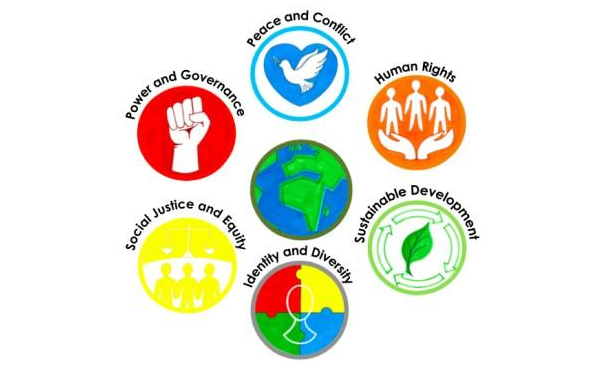
Global Curriculum
Our Global Curriculum gives our children opportunities to make sense of the increasingly complex and rapidly changing world in which they live. Our curriculum enables pupils to think critically about world issues and to develop an awareness of the impact our actions can have on others.
The six global themes the children learn are:
Social Justice and Equity; Identity and Diversity; Sustainable Development; Peace and Conflict; Human Rights; and Power and governance.

Children apply their core knowledge through termly projects, which are knowledge rich, aspirational and contextualised. Children work towards authentic outcomes and engage with real-life audiences. They undertake projects that involve complex issues, and in doing so, develop an understanding of what is possible and a belief that they can make a difference. We provide rich opportunities for the children to explore citizenship and real-life world issues, which at times they may have to grapple with to make sense of it. This, in turn, helps them to develop skills such as collaboration and communication, thus equipping them with the necessary skills for life in the 21st century. Across each year a number of high-quality core texts are used to bring the themes and knowledge to life for our children and to promote a connectedness with the learning.
Humanities within a global curriculum
We aim to educate the next generation about the planet they live on, its past and its challenges. We want all our pupils to be passionate about history and geography and to develop a love of learning for these subject disciplines. Within the learning journeys, we encourage pupils to develop their critical thinking, problem-solving and oracy skills.
The humanities learning is woven into our global curriculum so that children contextualise their learning and make connections with their prior knowledge. This encourages pupils to become conscious and connected global citizens. Embedded throughout our curriculum are multiple opportunities for the pupils to explore their local history and geography. Pupils are also exposed to ‘hidden and untold stories’ of individuals and groups of people from a range of time periods. This allows pupils to learn about diverse cultures, and people who are similar and different to them.


